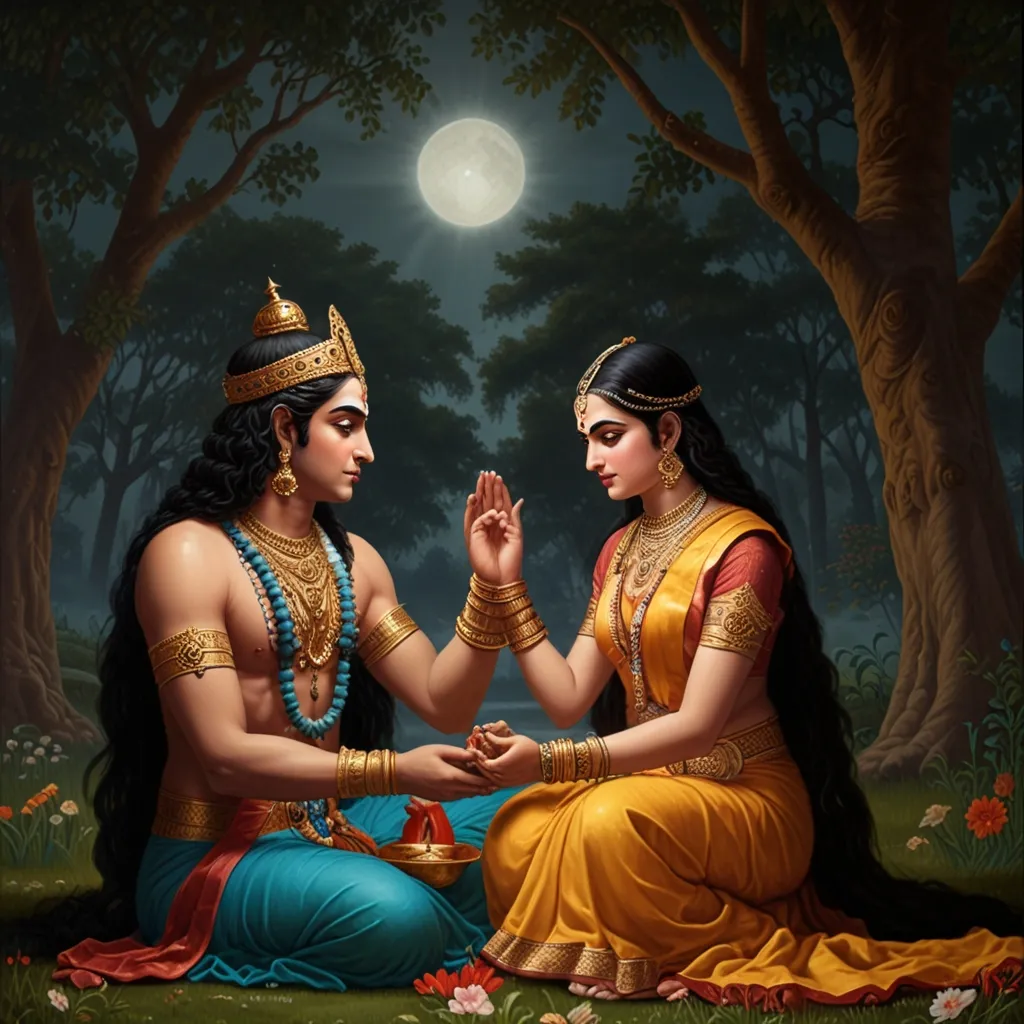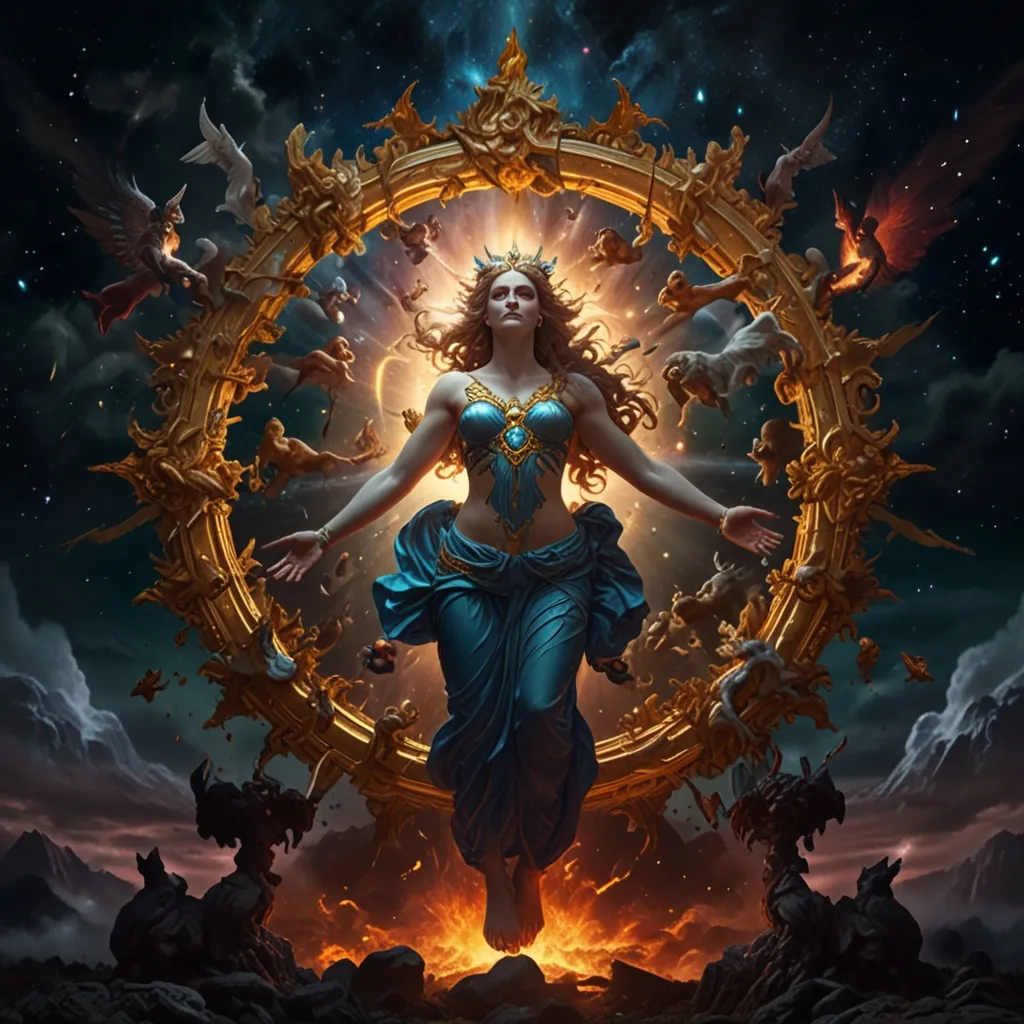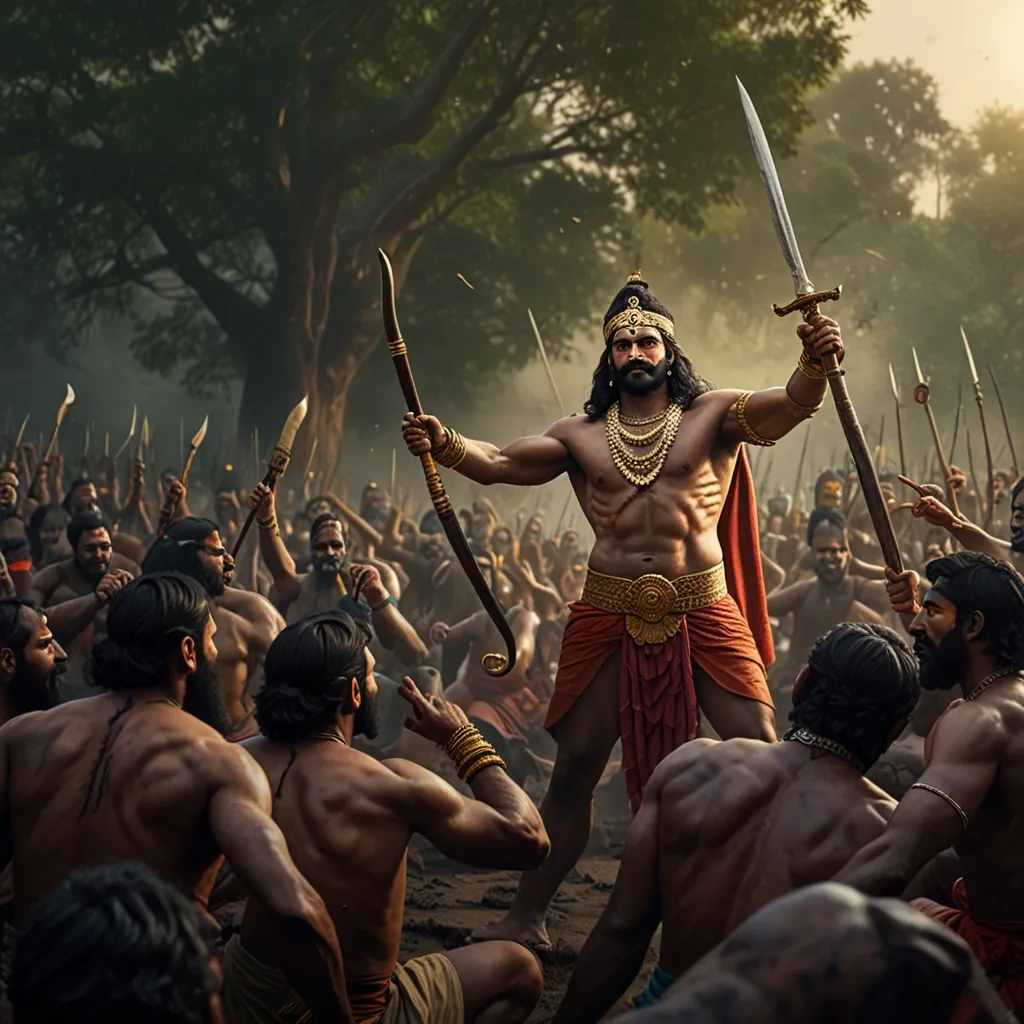Let’s dive into the ancient and epic world of the Mahabharata and explore the fascinating story of Nakula and Sahadeva, the twin sons of Madri. This tale brims with larger-than-life characters, divine interventions, and the enduring themes of love, sacrifice, and devotion.
Madri, the second wife of King Pandu, plays a central role in this story. She longed for motherhood, a dream that seemed out of reach until she made use of a special boon. This boon was granted to Pandu’s first wife, Kunti, by Sage Durvasa, which allowed her to summon any deity to bear children. By the time Madri entered the scene, Kunti had already given birth to her three sons: Yudhisthira, Bhima, and Arjuna. But Madri’s persistent longing was anything but subdued.
Madri’s journey began with her marriage to Pandu. She was the sister of Shalya, the Madra Kingdom’s king, and Bhishma, the Kuru Kingdom’s statesman, orchestrated the marriage. Despite Shalya’s initial reluctance to part with his sister, Bhishma’s gifts and diplomatic persuasion won him over. Thus, Madri found herself journeying to Hastinapura, the heart of the Kuru Kingdom, where she wedded Pandu.
Pandu’s life took a tumultuous turn when he was cursed by the sage Kindama. In a tragic twist, Pandu mistakenly shot Kindama and his wife, disguised as deer, while hunting. The curse laid by the dying sage was ominous: Pandu would meet his end if he ever approached his wives with romantic intentions. Resigned to his fate, Pandu relinquished his throne and retreated to the forest with his wives, Kunti and Madri, to live an ascetic life.
Despite this curse, Pandu’s desire for children didn’t wane. Kunti, with her benevolent heart, decided to share her boon with Madri. Together, they invoked the Ashvins, the twin gods known for their medical prowess and healing powers. The result of this divine summoning was the birth of Nakula and Sahadeva.
The twin births brought incredible joy and pride to Pandu and his family. Nakula was especially noted for his striking handsomeness and his warrior skills, especially in swordsmanship and horse-keeping. Sahadeva, on the other hand, was known for his remarkable intelligence and wisdom.
The relationship dynamics between Kunti and Madri were intriguing. Initially, Kunti’s decision to share the boon was an act of kindness. However, as Madri successfully bore twins in one invocation, Kunti couldn’t help but feel a pang of envy and betrayal. Madri had managed to achieve what Kunti had done in multiple attempts. This simmering tension was palpable in their interactions, tinged with a quiet rivalry beneath their shared affection for the children.
Despite these complex emotions, the family stayed united, and Pandu’s five sons received excellent education and training under the guidance of their tutors, Kripacharya and Dronacharya. Nakula and Sahadeva, much like their elder siblings, emerged as skilled warriors, playing vital roles in subsequent crucial battles.
Tragedy struck when Pandu’s deep-seated desires overpowered him, leading to his attempt at intimacy with Madri. As per the curse, Pandu died, and Madri, overwhelmed by grief and remorse, chose to end her life by performing sati, a ritual of self-immolation on her husband’s pyre. This heart-wrenching act showcased Madri’s devotion and love for Pandu.
Left bereft, Kunti was now solely responsible for nurturing all five sons. She took on this role with immense strength and dedication, ensuring that they received the best upbringing possible. Nakula and Sahadeva, under Kunti’s care, grew to be valorous warriors who played significant roles in the grand narrative of the Mahabharata.
Nakula was known not just for his stunning looks but also for his prowess as a swordsman and horse-keeper. He was often referred to as the most handsome man in the Kuru lineage. During the Rajasuya sacrifice of Yudhisthira, his eldest brother, Nakula achieved great feats, conquering various kingdoms such as the Sivis and the Rohitakas. In a more dramatic turn, during the Pandavas’ year of incognito exile, he cleverly disguised himself as a horse trainer named Granthika.
Sahadeva, with his keen intellect, was a man of wisdom. His role in the Kurukshetra War was pivotal, and he fought alongside his brothers with exceptional bravery, contributing significantly to the Pandavas’ eventual victory.
The Mahabharata takes a poignant turn as the Pandavas embark on their final journey to the Himalayas. Nakula, despite his exemplary life, was the third to fall after Draupadi and Sahadeva, succumbing to his excessive pride in his own beauty. Yet, his story, along with that of his twin brother, leaves a lasting legacy that continues to inspire.
The tale of Nakula and Sahadeva is one of many in the Mahabharata that showcases the interplay of divine intervention, human desires, and complex relationships. Their lives, marked by the boon of the Ashvins and their noble deeds, stand as a testament to the values of love, sacrifice, and devotion, echoing through the corridors of time.






